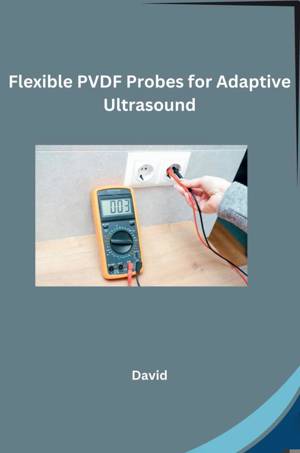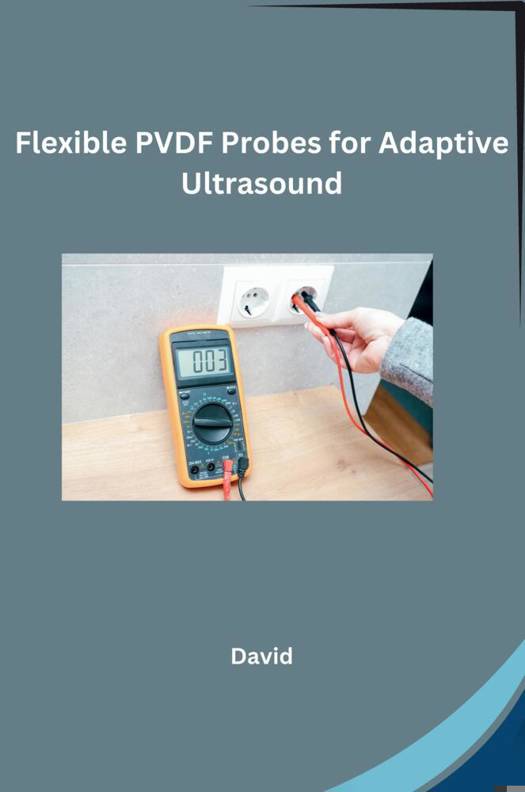
- Afhalen na 1 uur in een winkel met voorraad
- Gratis thuislevering in België vanaf € 30
- Ruim aanbod met 7 miljoen producten
- Afhalen na 1 uur in een winkel met voorraad
- Gratis thuislevering in België vanaf € 30
- Ruim aanbod met 7 miljoen producten
Zoeken
Omschrijving
Traditional ultrasound probes are rigid, limiting their ability to image complex body structures. Enter PVDF (polyvinylidene fluoride) probes - the future of adaptive ultrasound. These innovative probes are micromachined from a special plastic that converts pressure into electrical signals. This flexibility allows them to bend and conform to the body's contours. The advantages are numerous. PVDF probes provide superior contact with uneven surfaces, resulting in sharper, more detailed images. They can navigate tight spaces and reach organs previously inaccessible. Additionally, their flexibility allows for consistent pressure application during scans, reducing operator variability and improving image quality. This technology holds immense potential. Imagine a comfortable, wearable PVDF patch for continuous organ monitoring or a probe that effortlessly curves around limbs for better bone visualization. Flexible PVDF probes promise a future of adaptive ultrasound imaging, leading to more accurate diagnoses and personalized patient care
Specificaties
Betrokkenen
- Auteur(s):
- Uitgeverij:
Inhoud
- Aantal bladzijden:
- 130
- Taal:
- Engels
Eigenschappen
- Productcode (EAN):
- 9783384224576
- Verschijningsdatum:
- 10/05/2024
- Uitvoering:
- Paperback
- Formaat:
- Trade paperback (VS)
- Afmetingen:
- 152 mm x 229 mm
- Gewicht:
- 199 g

Alleen bij Standaard Boekhandel
+ 53 punten op je klantenkaart van Standaard Boekhandel
Beoordelingen
We publiceren alleen reviews die voldoen aan de voorwaarden voor reviews. Bekijk onze voorwaarden voor reviews.











